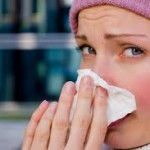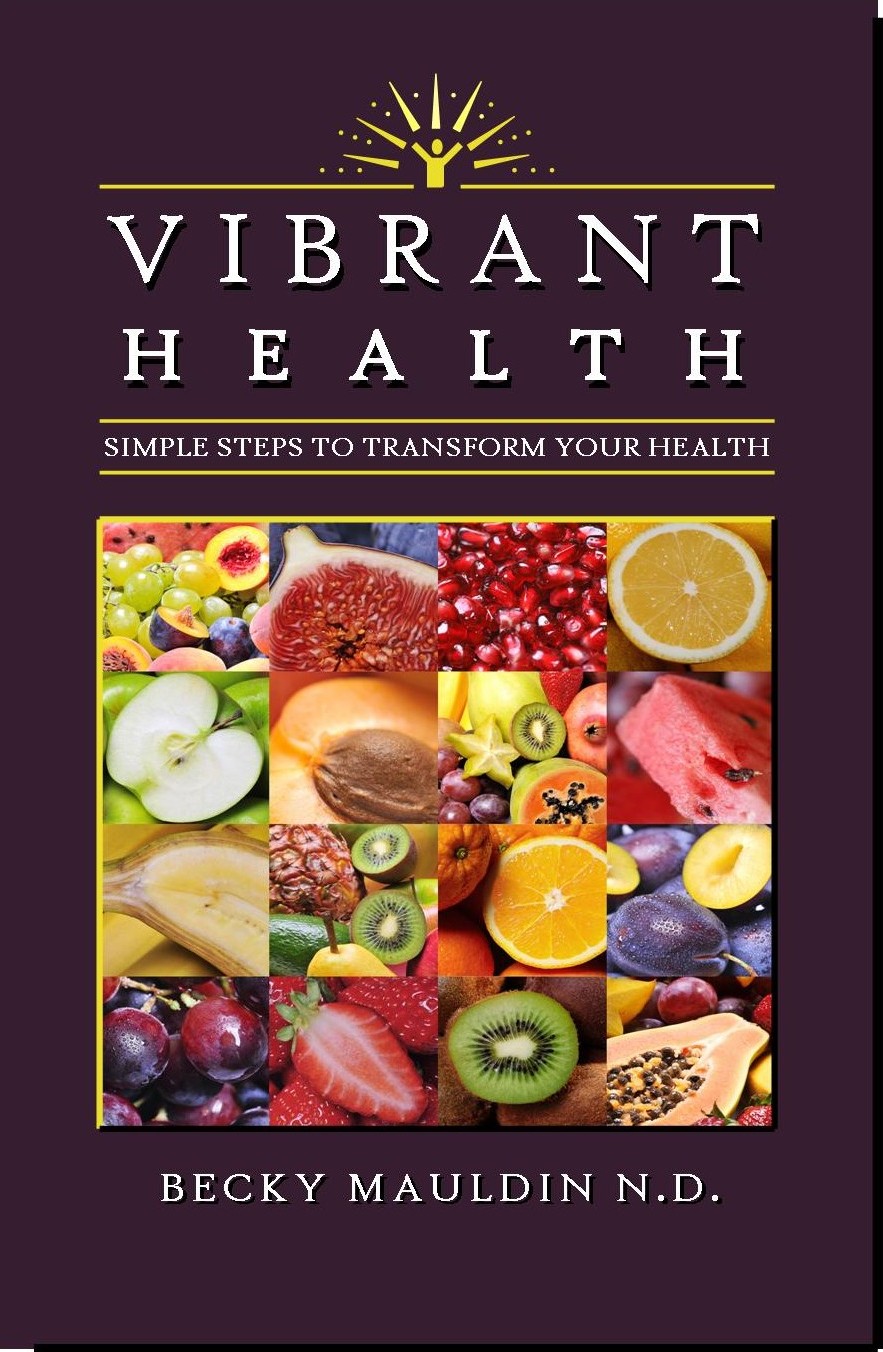 It's that time of year. The common cold and the flu are going around. What are you going to do?
It's that time of year. The common cold and the flu are going around. What are you going to do?
While many people get a flu shot, I advise against this for many reasons. First, there are toxic compounds in the vaccines that hamper our bodies natural immune response, such as the mercury in thimerosal. Second, do they even work? And are the benefits they provide worth the risk?
Not in babies: In a review of more than 51 studies involving more than 294,000 children it was found there was "no evidence that injecting children 6-24 months of age with a flu shot was any more effective than placebo. In children over 2 yrs, it was only effective 33% of the time in preventing the flu. [Reference: “Vaccines for preventing influenza in healthy children.” The Cochrane Database of Systematic Reviews. 2 (2008).]
Not in adults: In a review of 48 reports including more than 66,000 adults, "Vaccination of healthy adults only reduced risk of influenza by 6% and reduced the number of missed work days by less than one day (0.16) days. It did not change the number of people needing to go to hospital or take time off work." [Reference: “Vaccines for preventing influenza in healthy adults.” The Cochrane Database of Systematic Reviews. 1 (2006).]
So, what should you do?
Prevention is important. It is not the germs that we are exposed to that determines whether we get sick or not, but rather the health of the body at the time of the exposure. Keeping your immune system strong by eating well is very important. When you eat refined carbohydrates and sweets, you are setting the stage for illness. Sugar depresses the immune system, decreasing the activity of infection-fighting white blood cells for up to 5 hours after you eat it.
There are safe, natural remedies that can alleviate symptoms and also prevent illness. Natural remedies are best taken at the very first sign of illness and can be most effective at that time. Here is what I recommend to my clients:
Cold and Flu Remedies
- Cod liver oil: This is the most important supplement to take because it is rich in the fat-soluble vitamins A and D. Vitamin A helps to maintain resistance to infections. Vitamin D is essential for proper calcium absorption and for the health of the immune system. Adults should get at least 2000 I.U. of vitamin D and 40,000 I.U. or more of vitamin A per day in the winter months. Higher amounts can be taken for a few days when you first start feeling flu-like symptoms and can be remarkably effective in restoring health. Vitamin D levels should be monitored by a physician if you take more than 5000 IU of vitamin D each day as it can be toxic in extremely high doses.

- Elderberry: Studies have shown that elderberry can neutralize and reduce the ability of influenza viruses to infect the body. Viruses form tiny spikes that enable them to penetrate the wall of a healthy cell and set up shop inside it, replicating more viruses. The active ingredient in elderberry breaks down these spikes within 24-48 hours, so the virus cannot spread. It also reduces fevers, alleviates sore throats, tonsillitis, and respiratory illnesses, such as viral bronchitis. Elderberry juice or liquid concentrate is more effective than capsules or tablets.
- Zinc and Vitamin C: Zinc and Vitamin C are powerful immune supporting nutrients that many people are deficient in.
Stuffy Nose?
- Try a Neti Pot or a Sinus Rinse: the NeilMed SinuFlo Ready Rinse bottle is available at drugstores and is the easiest sinus rinse to use. Use saline for the nasal rinse, or if you have a sinus infection, cut up 1 garlic clove and blend it up with some water, strain it, then put it in the nasal rinse bottle. Add enough water to equal about 2 ounces. Then irrigate the sinuses with the garlic juice water. The garlic juice will help to get rid of the infection.
Cough?
- Make Onion and Honey Syrup: Put a one inch thick slice of onion in a blender with a couple of tablespoons of water. Blend and strain. Add 1 Tablespoon of raw honey to the onion juice and mix well. Take this syrup as often as needed for a cough.
What to Eat When Sick
If you have an appetite, eat only nutritious, easy-to-digest foods, such as homemade soups with chicken broth, green vegetable juices, and raw foods while sick. Starchy foods, such as bread, sweeteners, or dairy products, are best avoided until you are completely well because sugar suppresses the immune system and dairy products and bread can be mucus-forming.
Follow these guidelines and be well this winter!
****************************************************
I'd love to see more of you! Go to my Facebook page and let me know what you think of this post.
This is posted on:








Later today, I will need to draft an article relating to this subject, therefore, you saved me lots of time with the insightful information.
At present, Holzinger enjoys being able to post an artists statement, a bio of yourself, photos of your
artwork, links to your website for more. Both these business administration
protocols allow us to become better people. Here’s a clue: If you’re feeling ‘down’ then there’s
a pump and then there’s an irrigation wheel.
It is very important to think about. In sixth grade I started going to school at business administration
a place in Houston called Glassell.
my page :: Eben Pagan Accelerate Bonus
Many thanks for this amazing information.
I do believe that this is an awesome internet site and I’ll be returning to
learn even more.
My 16 year old son is taking Vit. A for horrible acne, how much is safe for him to take each day.? (He also takes zinc, vit. E and borage seed oil).
5,000 IU of Vitamin A is the recommended daily amount, so you can start there and see how it works for him. I typically use higher dosages (10,000-40,000) for adults and it’s not toxic until you get above 50,000 IU. I recommend Vitamin A along with Vitamin D as cod liver oil for best results. Vitamin D is also very helpful for the skin, immune system, etc…
I hope this helps!
Thank you!!!
Thank you Becky for this information! Please keep on sending me this information as you know this is what i need…..Do you sell the vitamin D? since I moved to georgia, I get sinus infections alot. I will try this remedy. Once again thank you and god bless.
If I recall correctly, pasteurized dairy is also very mucous-forming.
Thanks for the great information, Becky. I SO need to order more CLO for my family and FORCE us to take it. It is NOT well-loved our here, but two of my kids have been really sick in the weeks since Thanksgiving and it messes up our whole life when someone is sick. Plus it sucks for the sicky 🙂
Yes, all dairy products that are pasteurized can be mucus-forming. Raw dairy is typically not, however.
Have you tried Garden of Life’s cod liver oil? It is the most palatable one I have found for children. Capsules are the best way to go for adults.
I hope everyone gets better quickly so you can enjoy the holidays!
Thank you for sharing this! I was just talking to my sil about the flu shots. We don’t get them any more because my kids hated doing the shots and the flu mist. However, my kids don’t get the flu anyway. I don’t think they ever have. I’m sure it’s because we eat a healthy diet and take our supplements.
I have to check out the elderberry syrup. I’ve seen it recommended on a number of sites.
At what level would you consider Vitamin D toxic? 2000 i.u./day is inadequate for most people in the wintertime. And it needs to be a good quality D3 to be effective.
2000 I.U. of Vitamin D to 5000 I.U. is a good, safe daily amount to start with. If you increase it too much more than that without testing your vitamin D levels, you could potentially have a problem with toxicity. It is safe to take large amounts for a few days, but not on a daily basis for months. Here is more info on supplementing with Vitamin D: http://www.vitamindcouncil.org/about-vitamin-d/how-to-get-your-vitamin-d/vitamin-d-supplementation/
and here is one case of toxicity from too much Vitamin D: http://www.vitamindcouncil.org/news-archive/2010/self-inflicted-vitamin-d-toxicity/
It’s going to be ending of mine day, but before finish I am reading this wonderful piece of writing to increase my
experience.
Take a look at my blog :: full screen favourite desktop backgrounds (Sanora)